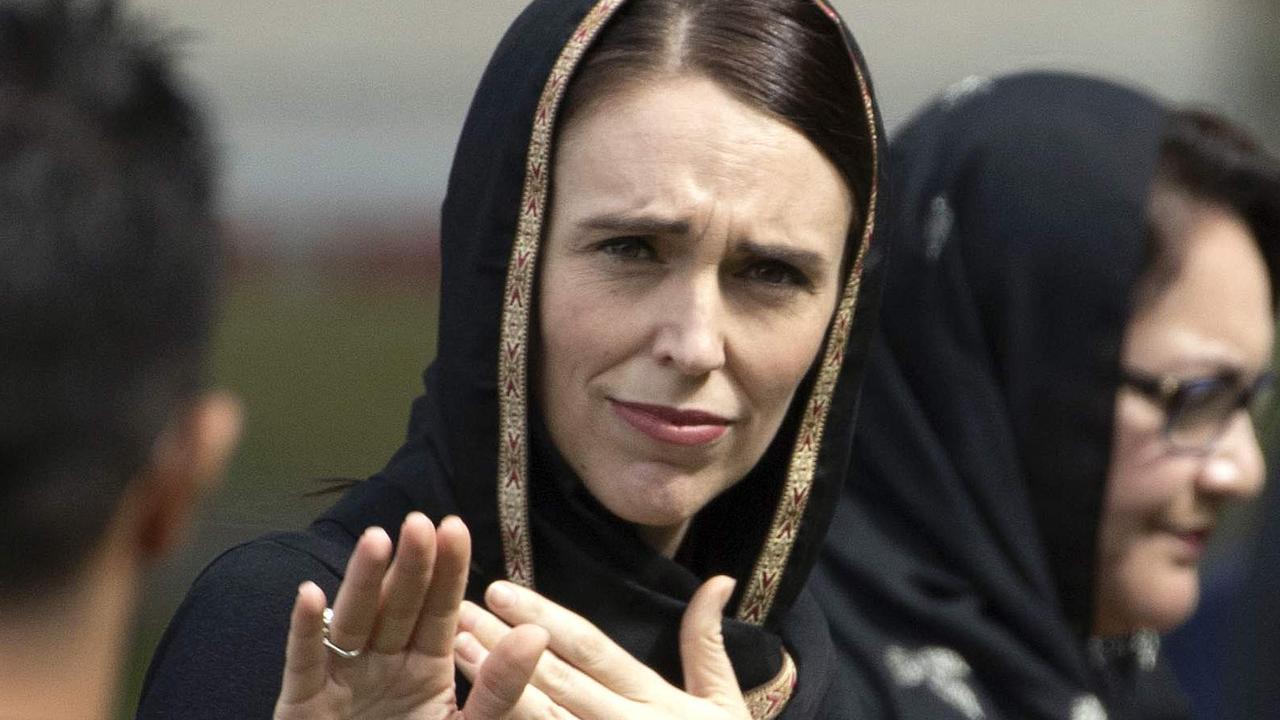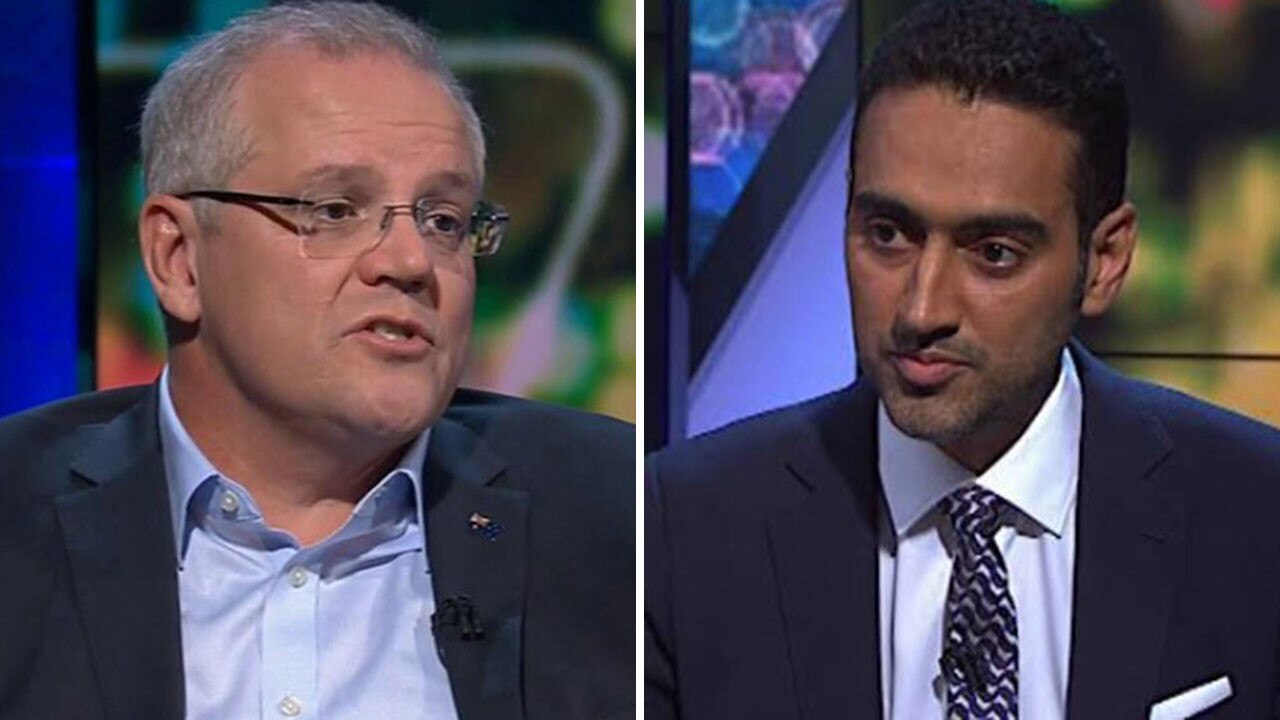Pell’s ordeal reinforces the case for judge-only trials
In some jurisdictions it has been recognised that juries can make mistakes — especially concerning high-profile defendants.
In introducing Sky News’s Paul Murray Live on Wednesday, the presenter said Australia has a legal system “with a pretty simple set of rules about it”. Namely, “the police investigate something, the department of prosecutions decide to go forward with the case, the case is argued before a court and a jury makes a decision”.
Murray added: “If there is an error at law, it will be exposed on appeal.” He was referring to the conviction of Cardinal George Pell for child sexual abuse in the County Court of Victoria. At least Murray, unlike so many journalists and commentators in recent days, acknowledged that Pell has a right of appeal. However, the analysis was simplistic. An appeal court can also overrule a jury decision if it finds the verdict was not reasonable in view of the evidence.
Murray’s claim that in criminal jurisdictions trials are decided by a jury alone in the first instance is inaccurate. This is correct with respect to Victoria. However, some states, for example NSW and Western Australia, have introduced the right for a defendant to have a trial by judge alone. Why? Well, in some jurisdictions it has been recognised that juries can make mistakes — especially concerning high-profile defendants.
In the lead-up to Victoria Police charging Pell, Murray was one of the leading Pell antagonists. PML ran panels featuring the likes of Derryn Hinch, Dee Madigan and Peter FitzSimons in which, channelling the ABC, everyone agreed with everyone else in condemning Pell. However, when Pell was charged, Murray had the honesty to concede that he doubted whether a fair trial in the case was possible.
The media’s role in the legal process drew the attention of judge Roy Ellis in the NSW District Court (the equivalent of the Victorian County Court) in Newcastle in December last year. The judge overruled the conviction of the former Catholic archbishop of Adelaide, Philip Wilson, for failing to report a child sexual assault to NSW police.
In his judgment, which took apart the evidence on which Wilson had been convicted, Ellis raised what he termed “the elephant in the room”. Namely, the media interest in “the prosecution of institutional child sexual abuse or its cover-up”. The judge acknowledged that while editors, producers and journalists have genuine interest in covering such crimes, “the potential for media pressure to impact judicial independence may be subtle or indeed subversive in the sense that … no one sees or acknowledges or wants to see or acknowledge”.
This is a criticism not so much of the media as the judicial system itself. The fact is that virtually no one in executive, parliamentary or judicial parts of the administration of governance is willing to address this matter.
Ellis wrote that large national and international media attention “may amount to perceived pressure for a court to reach a conclusion which seems to be consistent with the direction of public opinion rather than consistent with the rule of law that requires a court to hand down individual justice in its decision-making process”.
The NSW District Court judge went on to say that members of the Catholic hierarchy, such as Wilson, should not be punished for the crimes of other Catholic clerics simply because they are prominent Catholics and the media is on their case.
I have been interested in crime at least since I studied criminal law at Melbourne University over a half-century ago. In this time I have not seen so hostile a pile-on against a person, before and after a trial, as took place in the Pell case.
Such programs and papers as 7.30, Four Corners, Lateline, 60 Minutes, Channel 10’s The Project along with The Age and The Sydney Morning Herald, The Guardian, The Saturday Paper, The Daily Mail, Crikey and more besides campaigned against Pell year after year. They were led by such high-profile Pell antagonists as David Marr, Louise Milligan, Hinch and FitzSimons.
Paul Murray Live also fits into this group. However, alternative views on the Pell case could be found on other Sky News programs, most notably The Bolt Report. And it should be acknowledged that in recent days such non-Catholic commentators as John Silvester (The Age) and Guy Rundle (Crikey) have expressed doubts about the Pell conviction.
And there was the media crush outside the Melbourne Magistrates Court during Pell’s committal hearing proceedings last year where aggressive reporters competed with demonstrators who were yelling vile abuse at the (then) accused. Marr has described such behaviour as “vigorous free speech”.
However, the coverage of such an event could only further harm Pell’s reputation, already damaged by years of hostile allegations — virtually all of which failed to materialise. Except for the five charges, out of the original 26, on which he was found guilty and against which he will appeal.
The media pile-on against Pell even continued when the jury was hearing evidence in his trial. On November 28 last year, Chief Judge Peter Kidd expressed concern that, despite a suppression order, Melbourne University Publishing had circulated a media release advising that Milligan’s anti-Pell polemic, Cardinal,had won a people’s choice award. This was quickly withdrawn on the instructions of the Victorian Office of Public Prosecutions.
At this time Milligan tweeted about her book, which was suppressed for legal reasons. Her tweet was welcomed by FitzSimons. Whereupon Hinch re-tweeted the Milligan and FitzSimons missives. These tweets were also removed. But not before some of Australia’s best-known personalities — including Hinch, a senator for Victoria, had commented favourably on social media about Cardinal while R v George Pell was before the jury.
Last year the Court of Appeal threatened to refer three Turnbull government ministers for possible contempt charges because they had criticised the Supreme Court’s sentencing decisions. Yet the perceived prejudicial actions of MUP were determined not to interfere with the appeal.
Further, the potentially prejudicial actions of Milligan, FitzSimons and Hinch were not sufficient to abort a live trial.
The media’s intervention in the legal system should be a matter of real concern due to the universality of social media. It’s an added reason to implement trial by judge alone in Victoria.
Gerard Henderson is executive director of the Sydney Institute. His Media Watch Dog blog can be found at theaustralian.com.au.



